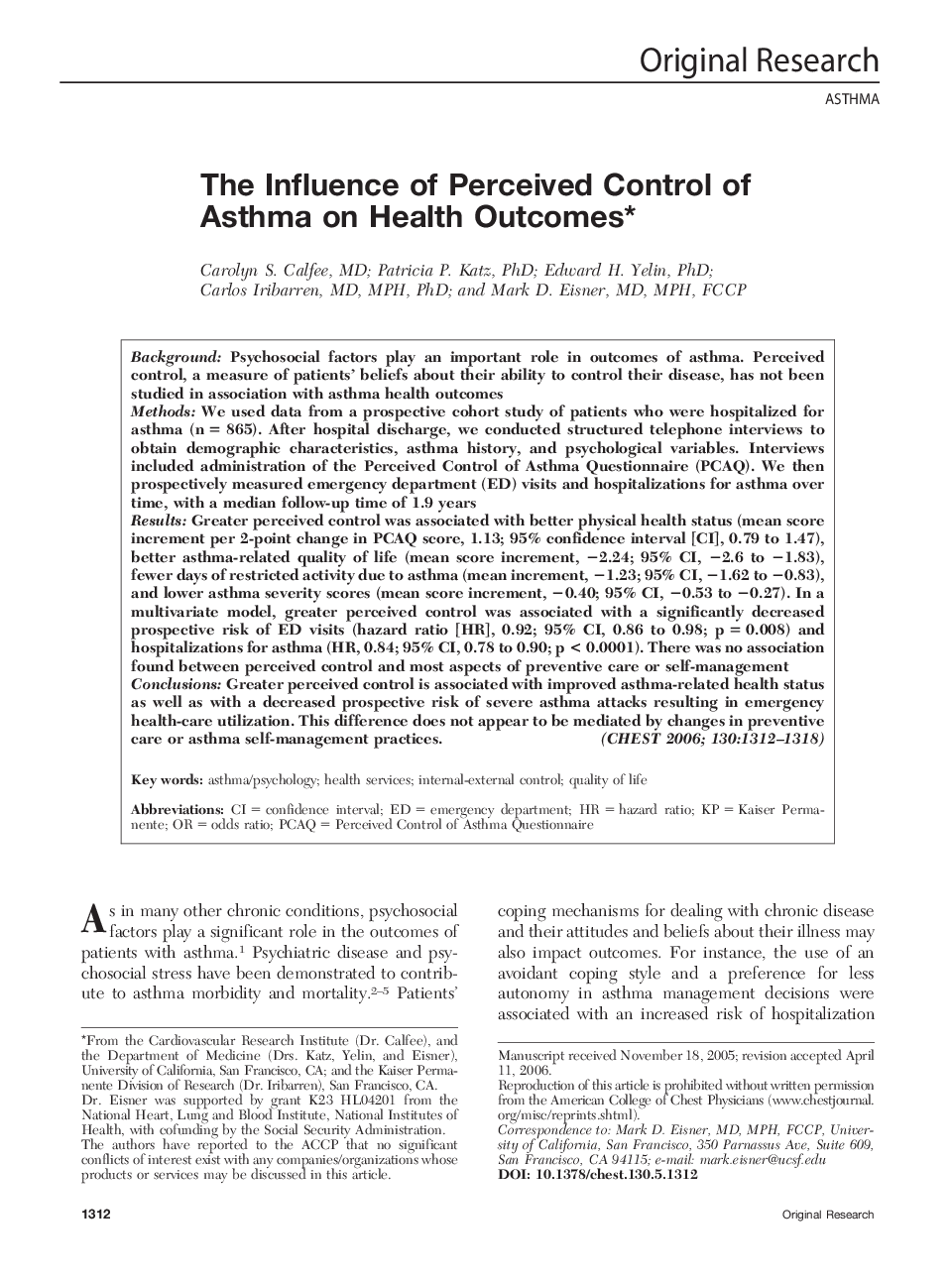| Article ID | Journal | Published Year | Pages | File Type |
|---|---|---|---|---|
| 2905450 | Chest | 2006 | 7 Pages |
BackgroundPsychosocial factors play an important role in outcomes of asthma. Perceived control, a measure of patients' beliefs about their ability to control their disease, has not been studied in association with asthma health outcomesMethodsWe used data from a prospective cohort study of patients who were hospitalized for asthma (n = 865). After hospital discharge, we conducted structured telephone interviews to obtain demographic characteristics, asthma history, and psychological variables. Interviews included administration of the Perceived Control of Asthma Questionnaire (PCAQ). We then prospectively measured emergency department (ED) visits and hospitalizations for asthma over time, with a median follow-up time of 1.9 yearsResultsGreater perceived control was associated with better physical health status (mean score increment per 2-point change in PCAQ score, 1.13; 95% confidence interval [CI], 0.79 to 1.47), better asthma-related quality of life (mean score increment, −2.24; 95% CI, −2.6 to −1.83), fewer days of restricted activity due to asthma (mean increment, −1.23; 95% CI, −1.62 to −0.83), and lower asthma severity scores (mean score increment, −0.40; 95% CI, −0.53 to −0.27). In a multivariate model, greater perceived control was associated with a significantly decreased prospective risk of ED visits (hazard ratio [HR], 0.92; 95% CI, 0.86 to 0.98; p = 0.008) and hospitalizations for asthma (HR, 0.84; 95% CI, 0.78 to 0.90; p < 0.0001). There was no association found between perceived control and most aspects of preventive care or self-managementConclusionsGreater perceived control is associated with improved asthma-related health status as well as with a decreased prospective risk of severe asthma attacks resulting in emergency health-care utilization. This difference does not appear to be mediated by changes in preventive care or asthma self-management practices.
